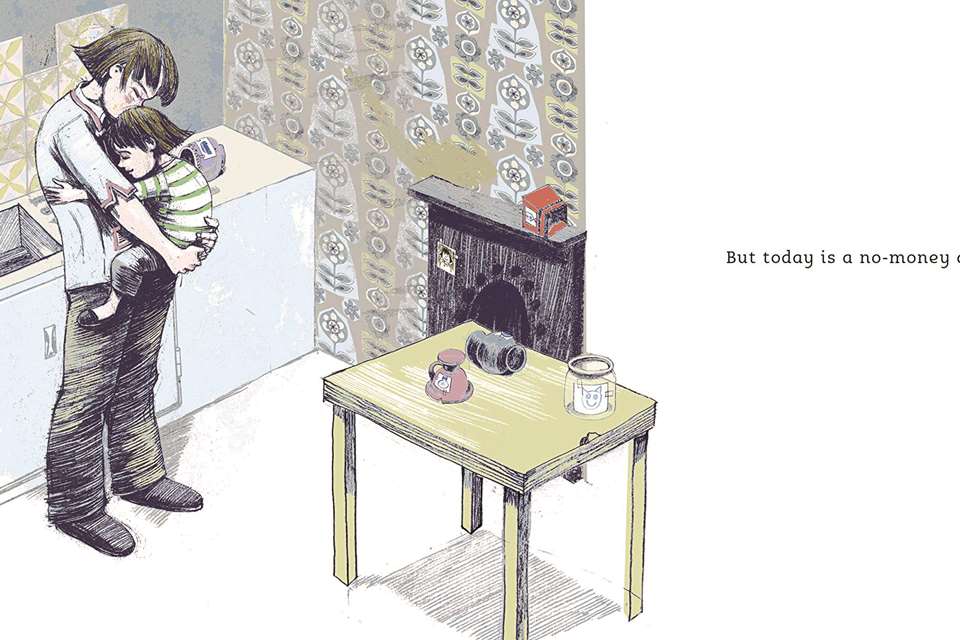EYFS Activities - Education for Sustainability: Grow your own
Dr Diane Boyd
Tuesday, February 2, 2021
In the second part of a series on introducing the Sustainable Development Goals to young children, Dr Diane Boyd explores activities such as growing your own food

UNESCO’s second Sustainable Development Goal (SDG), ‘Zero Hunger’, highlights the importance of food security, eating healthily and supporting farmers.
According to United Nations figures, 21 per cent of under-fives (some 144 million children) were physically stunted in 2019, while nearly 690 million people were hungry (up 60 million on 2014).
These are terrible statistics and ones that will worsen as a result of Covid-19. So, it is important that early years educators use their position to develop children’s understanding of healthy foods and sustainable sources. Below are some ideas to achieve this, but remember to follow the children’s thinking as you proceed.
Goals one (‘End poverty in all its forms’) and two are closely aligned, so you could revisit some of the themes, such as poverty and food banks, before introducing your children to this second goal (see ‘Food for thought’, Nursery World, January 2020). For more on SDG 2, visit: https://sdgs.un.org/goals/goal2.
GROW YOUR OWN
In Grow Your Own! by Esther Hall, Sidney and his mum live a busy city life, so dinner is cooked in the microwave and served on their laps. And the closest Sidney ever comes to a vegetable is the mushroom on his pizza. But a visit to his granny in the countryside changes that.
Extension ideas
- Develop a growing area in your setting. If space is limited, use containers. As Steiner, Froebel and Montessori all advocated, young children must track food from the soil to the plate.
- Promote intergenerational learning by asking parents and grandparents to get involved. Grow, dig up and eat!
- Watch the NHS ‘five a day’ video (https://bit.ly/3s0uGna) and discuss what vegetables the children know and like.
- Encourage parents to provide healthy lunch boxes, and talk to the children about how food supports healthy development and how it feels to be hungry. You could re-read It’s a No-Money Dayby Kate Milner, covered in Part 1.
- Walk to a greengrocer’s daily to buy fruit and veg for snack time. Encourage the children to weigh out the produce, pay for it and use sustainable shopping bags.
Learning links
Positive Relationships Gardening can promote partnerships with the wider family and local community.
Physical Development Children should ‘understand the importance of physical activity, and to make healthy choices in relation to food’ (EYFS 2017).
IN THE GARDEN
In the Garden by Noëlle Smit depicts a year in a garden or allotment in stunning colour illustrations for young children. Each spread shows a month and the activities that take place.
Extension ideas
- Display and discuss the World Cancer Research Foundation (WCRF) poster ‘What is a 5 a day portion?’. Introduce and discuss new language such as ‘portion’, ‘allowance’, ‘nutritious’, and weigh out an 80g portion of fruit or vegetables so children can see just how much it is.
- Develop links with your local allotment association, visit the allotments with the children and try to get them involved.
- Create a setting cookbook and sell it to raise money.
- Allow the children to experiment with food and create any unusual mixtures that they want.
- Show children the ‘Fruit & Vegetables’ video from the Tesco Eat Happy Project (https://bit.ly/3pWhXA0).
- Share Very Tasty Vegetables by Bryony Jones with the children.
Learning links
Understanding the World Children ‘make sense of their physical world and their community through opportunities to explore, observe and find out’ (EYFS 2017).
Sustainable development goals
This series explores meaningful and practical ways to introduce young children to UNESCO’s 17 Sustainable Development Goals (SDGs).
To support your understanding of the SDGs and how to integrate them into your practice, the series provides links to the three interconnecting pillars of education for sustainability (economic, environment and socio-cultural); the EYFS and its guidance; and British Fundamental Values.
MORE INFORMATION
‘All about…Early Childhood Education for Sustainability’ by Dr Diane Boyd, www.nurseryworld.co.uk
Diane Boyd is a senior lecturer, early years, at Liverpool John Moores University, d.j.boyd@ljmu.ac.uk.
Download Now






